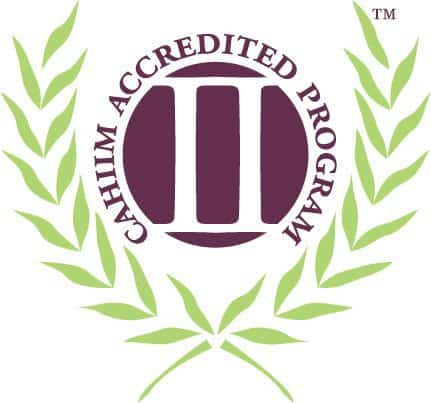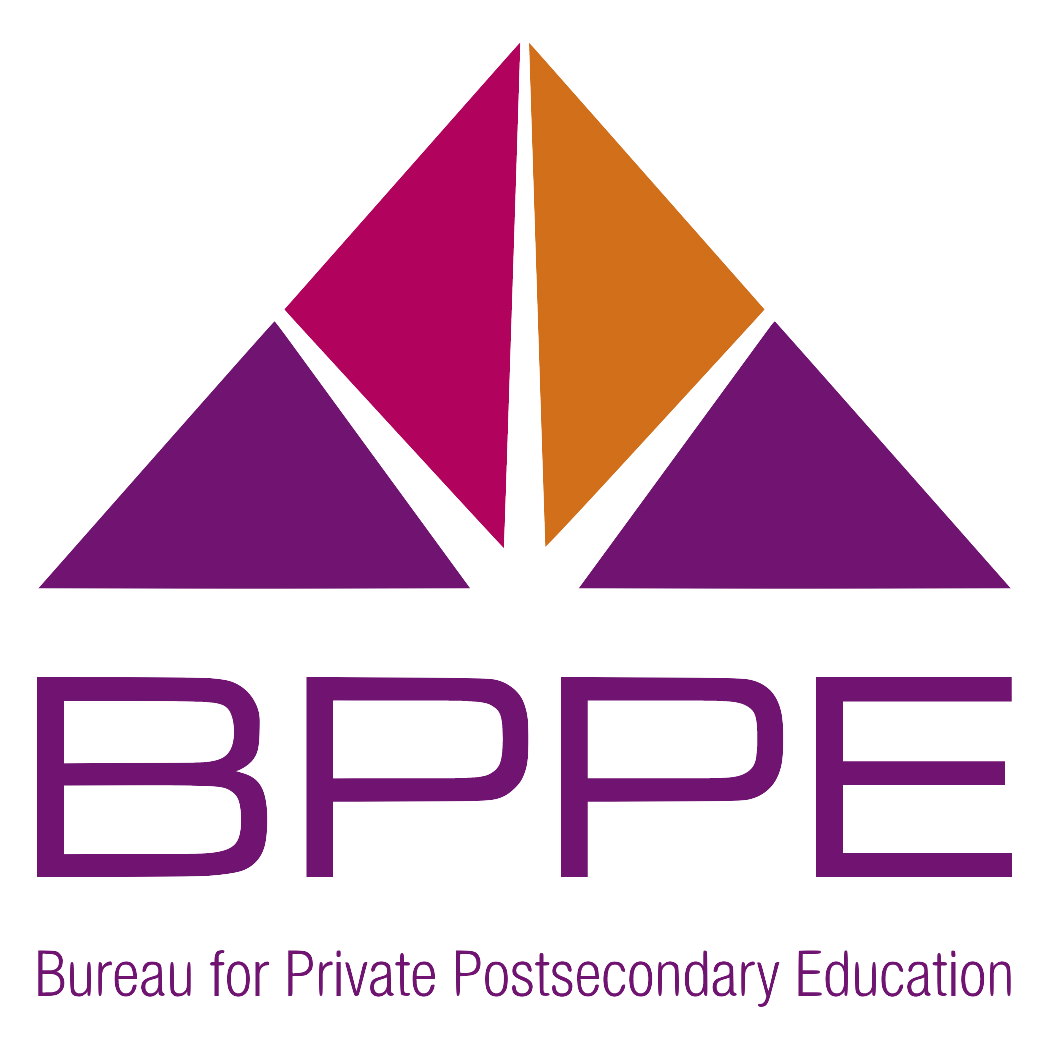
Terms of submitting this form: I agree that Bryan University may contact me regarding educational services via email, telephone, SMS text message, or automated technology at the email address and phone numbers provided. Message and data rates may apply. Message frequency may vary. Text STOP to cancel anytime. This consent is not required to enroll. For questions, call 1-888-768-6861. Visit our Privacy Policy.
Careers in health information management, medical billing and coding, and healthcare administration provide a rewarding work environment and job security in a growing industry.
According to the Bureau of Labor Statistics, jobs for Health Information Technicians are expected to grow much faster than average by 9% or higher through the year 20321
Bryan University can fast-track you to success, giving you the education, skills, and confidence to qualify for a great job.
1Bureau of Labor Statistics, U.S. Department of Labor, Occupational Outlook Handbook, Medical Records Specialist, at https://www.bls.gov/ooh/healthcare/medical-records-and-health-information-technicians.htm (visited February 8, 2024). Also online at https://www.onetonline.org/link/summary/29-9021.00. Note that job market conditions are dynamic and can change. This data is not intended to predict the market conditions that will be present when you graduate from your program and may differ based on your geographic location and other factors.
Enjoy the flexibility to choose from a range of career paths2, such as:
Preparing now means you’ll be ready for the jobs of the future.
2Example occupations shown herein do not imply a guarantee of employment. Students are responsible for conducting occupational research for their chosen program. Employers have unique hiring practices and job-specific requirements, which may include years of experience for manager positions. Graduates with little to no prior experience should expect an entry-level position.
With a degree from Bryan University, find opportunities to work in a variety of healthcare settings:
You’ll receive a dedicated career services advisor that provides job search assistance, job networking best practices, interview preparation, and helps you create an eye-catching resume.
Bryan U programs are aligned with employers’ needs to ensure you get the most current and relevant skills, including:
Bryan University’s Associate Degree of Occupational Science in Health Information Management is aligned with current competencies by the American Health Information Management Association (AHIMA), the Commission on Accreditation for Health Informatics and Information Management Education (CAHIIM), and developed in collaboration with industry experts. You’ll gain real-world practice experience online combined with assignments that simulate job tasks to ensure you’re job-ready upon graduation. Plus, we’ll assist you in finding a professional practice experience with a healthcare facility.
Use the AHIMA Vlab online tools such as EHR GO and 3M Coding, to gain practice using medical coding software and learn from real patient cases.
Professional Practice
Complete 120 hours of experiential learning: 40 hours of job-readiness tasks, 40 hours at an on-site healthcare facility, and 40 hours of virtual work online.

The health information management accreditor of Bryan University is the Commission on Accreditation for Health Informatics and Information Management Education (CAHIIM). The University’s accreditation for the Associate Degree in Health Information Management has been reaffirmed through 2022. All inquiries about the program’s accreditation status should be directed by mail to CAHIIM, 200 East Randolph Street, Suite 5100, Chicago, IL, 60601; by phone at (312) 235-3255; or by email at info@cahiim.org.
| Graduation Rate | Employment Rate | Student Satisfaction |
|---|---|---|
| 32% | 72% | 92% |



Master of Business Administration, Colorado Technical University; Psychology BA, University of Missouri – St. Louis; Associate in Applied Science, Major: Health Information Technology, St Louis Community College; Associate in Arts, Major: General Transfer Studies, St Louis Community College.

Master of Business Administration, Colorado Technical University; Psychology BA, University of Missouri – St. Louis; Associate in Applied Science, Major: Health Information Technology, St Louis Community College; Associate in Arts, Major: General Transfer Studies, St Louis Community College.

Master of HIIM, Health Infor & Info Mgmt, The University of Tennessee Health Science Center; Bachelor of Science, Health Information Management, The University of Alabama at Birmingham.

Master of HIIM, Health Infor & Info Mgmt, The University of Tennessee Health Science Center; Bachelor of Science, Health Information Management, The University of Alabama at Birmingham.
B.S. in Health Science, Howard University; Master of Sci Admin/Organizational Management, Trinity Washington University.
B.S. in Health Science, Howard University; Master of Sci Admin/Organizational Management, Trinity Washington University.

Master of Arts, Communication, Interpersonal Comm Track, University of Central Florida; Bachelor of Arts, Journalism, Specialization – Integrated Communication: Public Relations & Adve, Communication Studies minor, Butler University.

Doctor of Public Administration, West Chester University of Pennsylvania; Master of Arts, Communication Studies, West Chester University of Pennsylvania; Bachelor of Arts, Communication, Immaculata University.
Master of Arts, English, Arkansas State University; Bachelor of Arts, English, Faulkner University.
Following the completion of this program, students will be able to:
This course introduces the concepts and theories of interpersonal communication. Students will explore the process and functions of communication, developing relationships, communication strategies and skills, and interpersonal language skills, including conflict management.
This course provides foundational topics related to logic and critical thinking including, informal logic, formal logic, and fallacies.
A course covering the information and skills needed to succeed in academic studies, including study skills, setting academic goals, managing time, and technology skills such as word processing and presentations.
This course covers written communication skills with an emphasis on understanding the writing process, analyzing readings, and practicing writing for personal and professional applications.
Students will review and practice HIM and coding concepts and exercises learned during the course of the Health Information Management program at Bryan University. Emphasis will be placed on skills that directly relate to successful completion of a certification examination. This course allows for self-directed review to identify topics on which additional study is needed to master the requirements of the certification examination. Additionally, this course includes professional practice experience, or placement in a healthcare facility, health information management department, or related service, to use acquired technology level skills and build practical knowledge of health information functions and systems. It requires the completion of a capstone project for and under the direction of the program director or site.
Students will learn how to analyze data and use data tools. They will gain skills in sorting large data sets, interpreting data, and applying and abstracting data in a meaningful way. Students will learn the art of data mining and acquire hands on experience working on data mining projects. Also, students will utilize data dashboards and create other data visualizations, tracking healthcare trends and making recommendations for improvement.




As a Bryan University student, you’ll receive these benefits and services included in tuition at no extra cost.
Prepare for third-party certifications – one certification exam attempt paid for by the university.
We give you easy access to your e-textbooks and software.
Our tutors and academic staff provide personalized support whenever you need it.
You’ll receive a starter package to ensure you’re ready to succeed in your program.
Finish in the shortest time possible and never get wait-listed for course registration.
As a graduate, audit previously completed courses free to keep your skills sharp.
You'll receive dedicated support to help you succeed in and out of the classroom.
Get expert help to ensure you're job-ready and connect with employers.
Learn from faculty with real-world experience in their field.

We recognize that life can be busy and complex, so we’ve designed the learning experience around you. You have the option to complete your homework assignments online each week at days and times convenient to you. You have the flexibility to resubmit homework to improve your grades and gain greater mastery of the course content.

We provide you with user-friendly learning technology such as adaptive digital textbooks and simulated job tasks to help you learn faster, easier, and retain more knowledge. All your efforts are recorded so you can track your progress and plan your time more effectively.

Studying online with Bryan lets you learn from the comfort of home while connecting you in live events with peers, teachers, industry professionals, and mentors. If you happen to miss the event, we record them so can you watch them later and not miss a beat. Whenever you need help with an assignment, you can schedule a tutor at any time online with the click of a button.

At Bryan, we don’t think learning online means learning alone. Connect with faculty, peers, and student support conveniently from your smartphone, tablet, or computer using Zoom, a user-friendly video app. You’ll join a vibrant community that includes industry experts who will provide support, expand your professional network, and celebrate your success along the way.
Most programs provide live classes that are also recorded in case you miss them and need to watch them later - click here for a list of live classes by program.
Didn't get the grade you wanted? At Bryan U, you can resubmit your homework to improve your grades.
You'll learn using a program that adapts to your knowledge level while helping you learn faster and retain more.
Engage with others in class using a social platform to share your thoughts on topics you're interested in.

Bryan offers affordable tuition rates for all students, no matter where they reside. We don't differentiate between residents or non-residents. We also lock-in your tuition rate when you enroll, so you can rest assured that your tuition will never increase over the length of your program.
If you apply to Bryan University with prior college credits and/or a degree, we’ll accept as many credits as possible to validate the hard work you’ve already completed. If you complete a Bryan U associate degree or undergraduate certificate, these credits are transferrable to a higher degree, such as a bachelor’s degree.
As an accredited institution, students of Bryan University who are residents of the United States may qualify for federal financial aid. Our team of dedicated financial advisors can also help you understand what other options are available to you. To learn about those who qualify, please visit our financial aid page.
For students who are veterans or active-duty members of the U.S. military, you may also use your military educational benefits, if qualified. Please see our military benefits page for more details. You may also complete the Request Information form or call us at 888-721-9773 to receive immediate assistance.
As you progress through each credential level (e.g., certificate to associate degree, or associate degree to bachelor’s degree), your tuition decreases. Plus, your tuition is locked in once you enroll so that it never goes up as long as you remain continuously enrolled in good academic standing. For a current listing of Bryan University’s tuition rates by program, please visit our tuition rates page.
To be admitted to Bryan University, prospective students must complete the following requirements:
To begin this process, we invite you to contact a member of our admissions team at 888-768-6861 or complete the Request Information form.